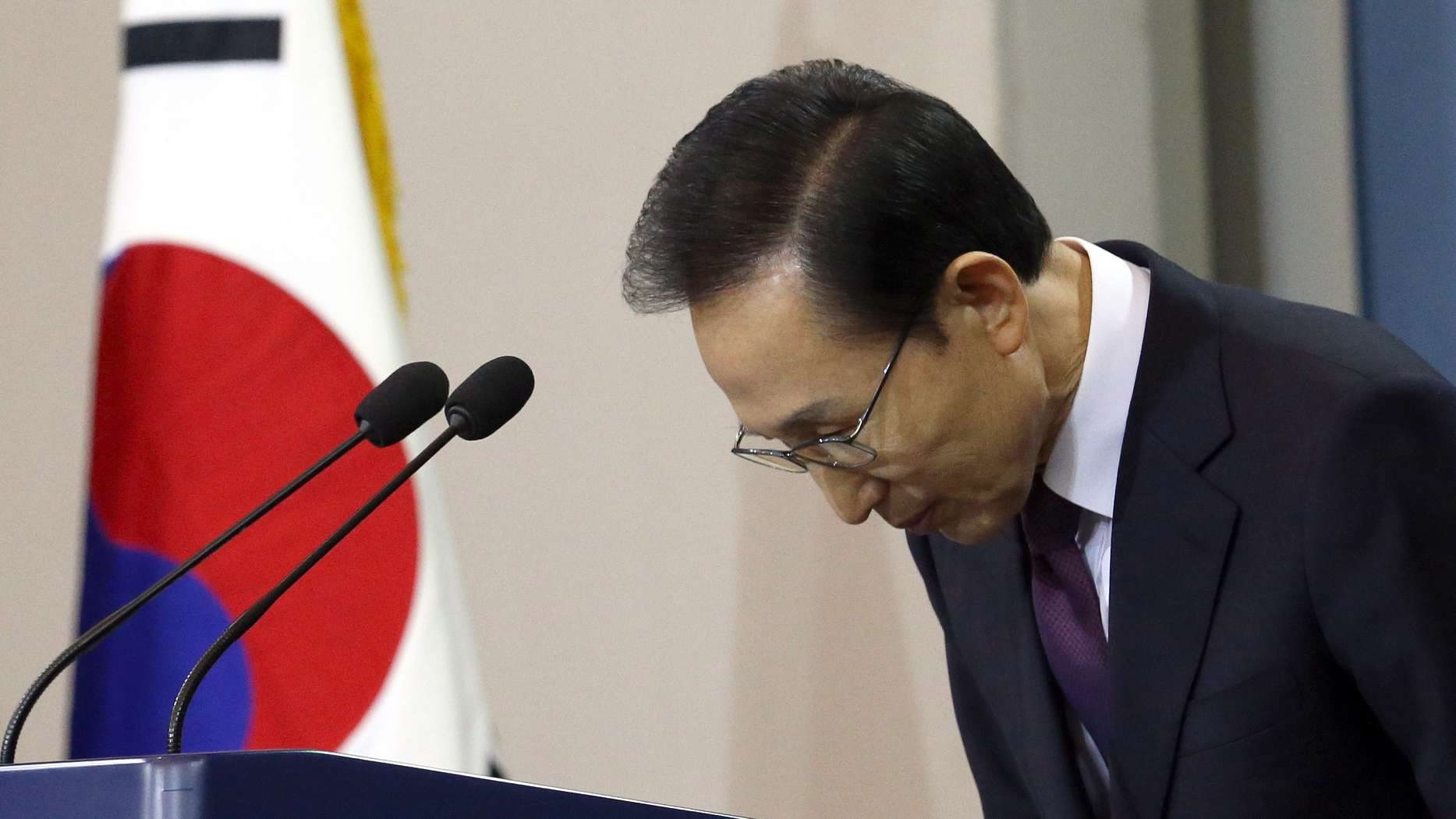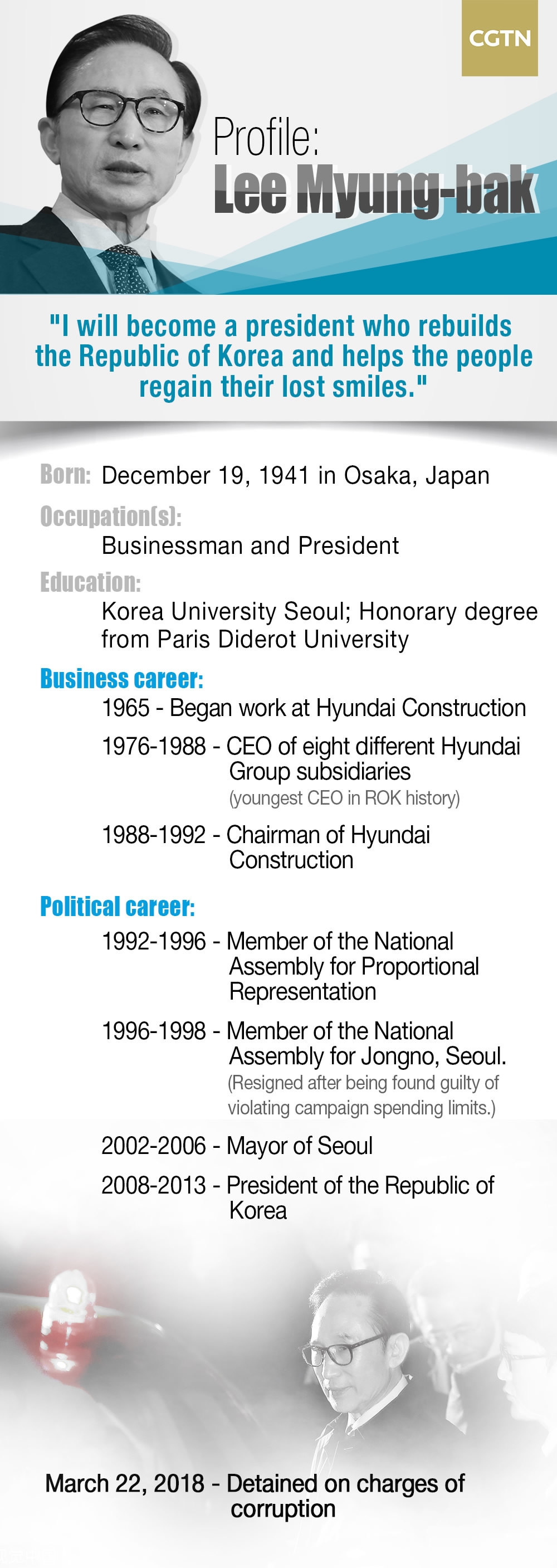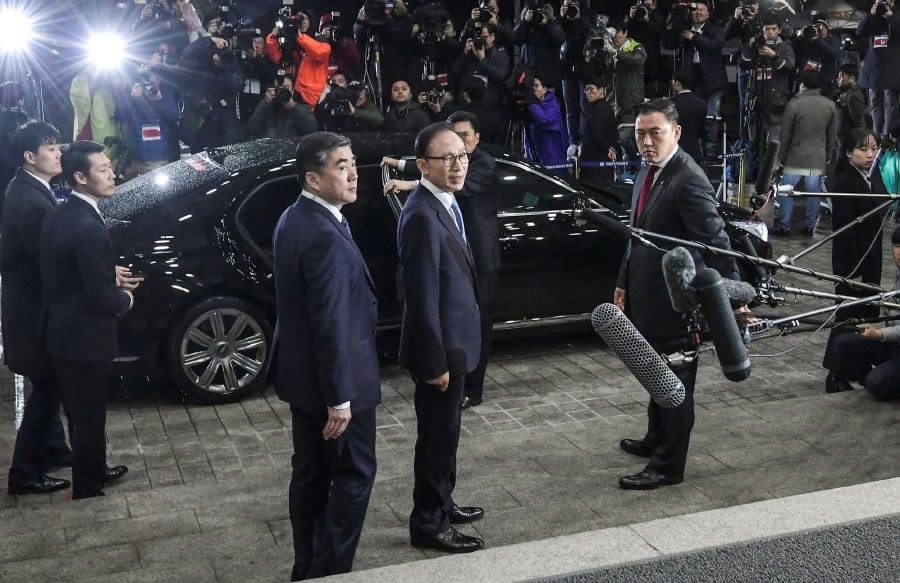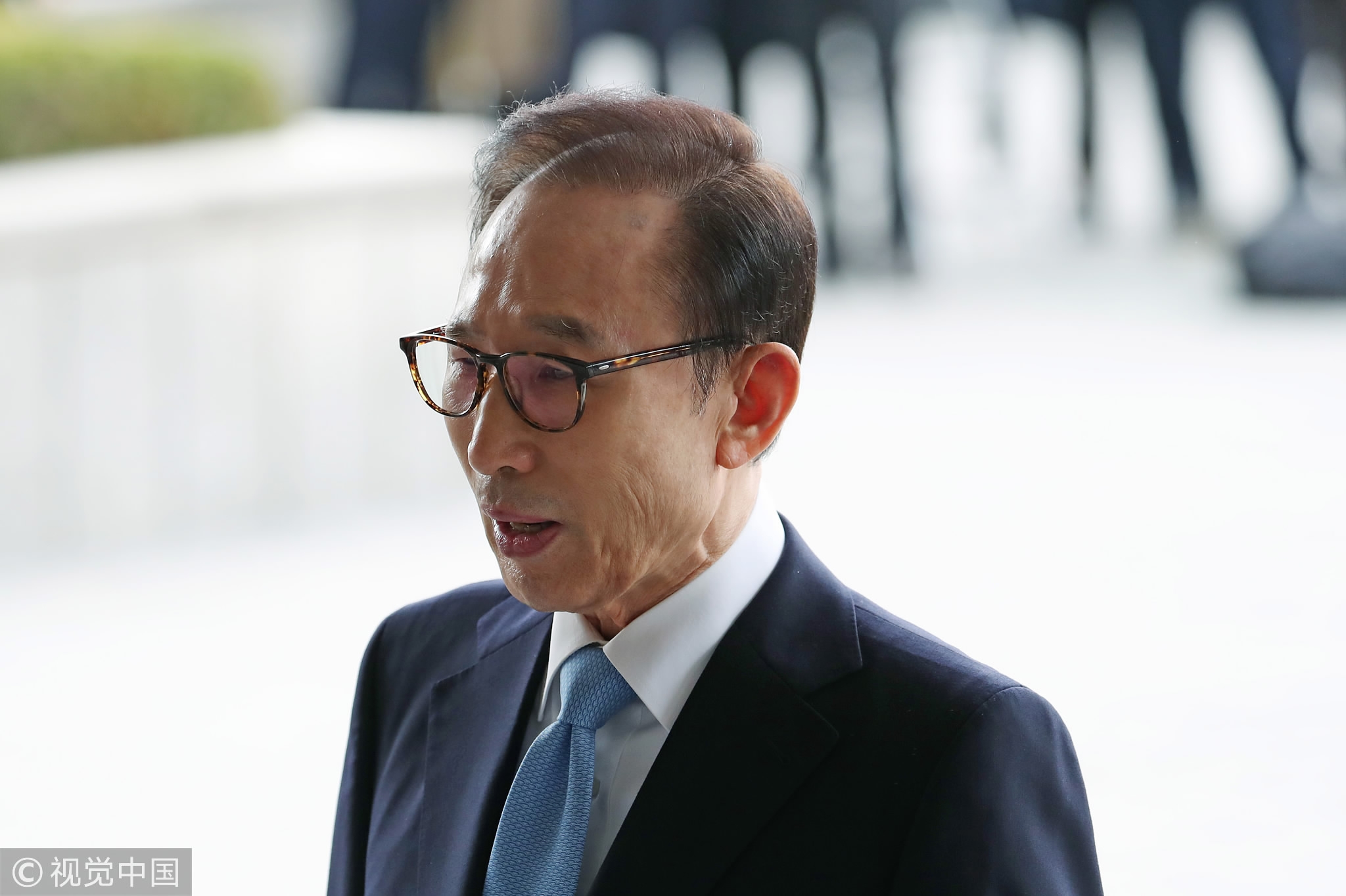
Politics
18:49, 04-May-2018
Former S. Korean President Lee denies bribery in first pretrial hearing
CGTN

In his first pretrial hearing, former South Korean president Lee Myung-bak pleaded not guilty to charges of bribery and corruption.
Lee, who was in office from 2008 to 2013, has become the latest former South Korean leader to face criminal charges. His successor, the country's first female president, Park Geun-hye, was sentenced to 24 years in prison on April 6 for multiple charges, including abuse of power and bribery.

According to Chosun Ilbo, one of South Korea's major newspapers, prosecutors have asked the court to sit four days a week in order to wrap up the case before the six-month limit on Lee's detention expires. However, Lee's lawyers claimed that it is "inappropriate" to focus on speed.
The court responded, agreeing to hold only three hearings a week for the time being but said it might have to change its mind, Chosun Ilbo reported.
How the corruption case unfolded
In the period of less than a month, Lee went from a former president with a clean record to being indicted for 16 graft charges, including bribery, embezzlement, abuse of power and tax evasion. Charges were officially filed by the Seoul Central District Prosecutors' Office on April 9.
Lee has previously denied any wrongdoing and apologized to the public in a hand-written statement posted to his Facebook page. He also wrote that he hoped to be the country's last president to be investigated by prosecutors.

South Korea's former President Lee Myung-bak (C) leaves the prosecutors' office in Seoul, March 15, 2018. /AFP Photo
South Korea's former President Lee Myung-bak (C) leaves the prosecutors' office in Seoul, March 15, 2018. /AFP Photo
What the charges are
According to a statement released by the prosecutors' office, his criminal charges can be see in the following cases:
- Control of DAS
The Seoul Central District Prosecutors' Office said Lee embezzled about 34.9 billion won (32.7 million US dollars) from DAS, a local auto parts manufacturer and helped the company evade 3.1 billion won (2.9 million US dollars) in corporate taxes by creating a slush fund through accounting fraud. He is also accused of using business credit cards for personal purposes.
Prosecutors have also confirmed that a three-month-long investigation shows that Lee was the real owner of DAS, contradicting his previous claim.
- Cases involving Samsung and DAS
During his time as president, Lee instructed senior government officials to actively support the DAS's legal action in the United States.
The former president allegedly took some 5.85 million US dollars in bribes from Samsung Group, the country's biggest family-controlled conglomerate, by making Samsung pay the US retainer fee on the DAS's behalf.

S. Korean former President Lee Myung-bak speaks as he arrives at the Seoul Central District Prosecutors Office in Seoul, S. Korea on March 14, 2018. /VCG Photo
S. Korean former President Lee Myung-bak speaks as he arrives at the Seoul Central District Prosecutors Office in Seoul, S. Korea on March 14, 2018. /VCG Photo
- Taking kickbacks
Lee is believed to have received millions of US dollars in kickbacks from businessmen and politicians in exchange for political and business favors, including a special operation fund for the country's spy agency.
- Leaking documents
He is also accused of illegally leaking 3,402 classified presidential documents at a building in Seoul, which is believed to be owned by the former president.
South Korean presidency 'vulnerable' to corruption
Lee is the country's second former leader to be imprisoned within the past year, while all four of South Korea's living presidents (the other three: Chun Doo-hwan, Roh Tae-woo and Park Geun-hye) have either been arrested or on trial.
South Korean news agency Yonhap reported that if Lee were convicted, he could face sentences ranging from 11 years to life in prison.
If Lee is convicted of the charges related to the use of his presidential powers for personal gain, Lee could face at least 20 years in prison, reported Yonhap citing law experts.
South Korean news outlet The Korea Herald has pointed out the country's presidency has been especially vulnerable to corruption and other misconduct.
All 11 of the country's presidents have faced charges or were actually convicted of a criminal offense. The recurring corruption charges have been blamed on the pattern of collusion between big businesses and the government, as well as the country's polarizing political parties.
South Korea's current President Moon Jae-in – who was elected in the aftermath of Park's ouster – pledged during his presidential campaign to cut entrenched ties between the government and family-run conglomerates, or chaebol, and promote corporate transparency.
The Korea Herald said in an editorial that the country needs to address the problem of an “imperial presidency,” and called for the restriction of the president's personnel authority to reduce presidential power.
In a move to curb presidential power, Moon proposed a revision to the country's constitution in March. The suggested change would replace a single five-year presidential term with a four-year-term, and gives the incumbent the option to seek another term.

SITEMAP
Copyright © 2018 CGTN. Beijing ICP prepared NO.16065310-3
Copyright © 2018 CGTN. Beijing ICP prepared NO.16065310-3